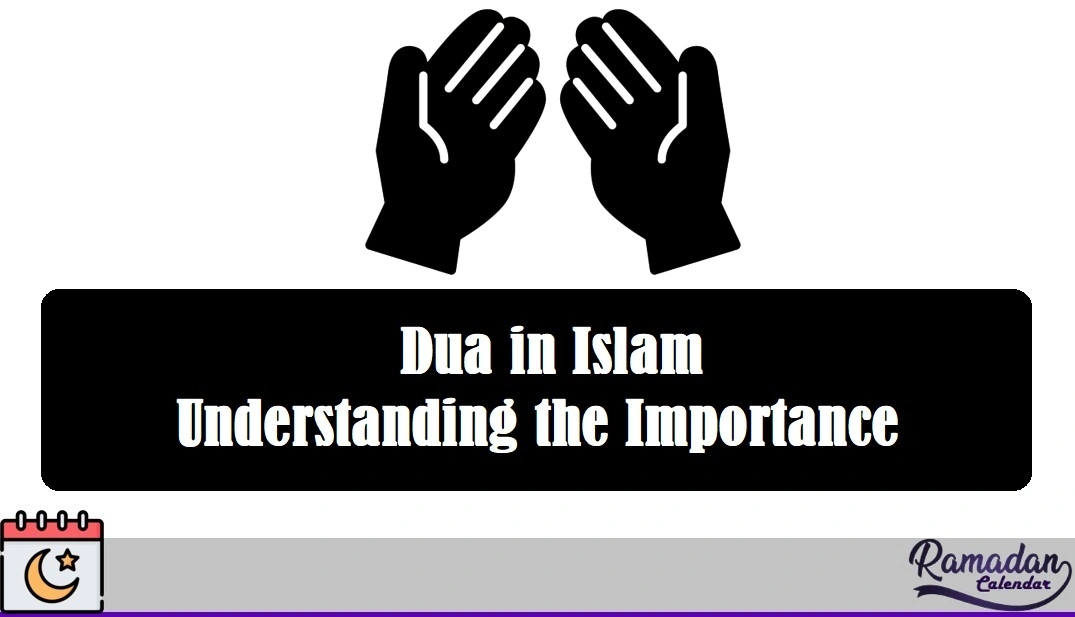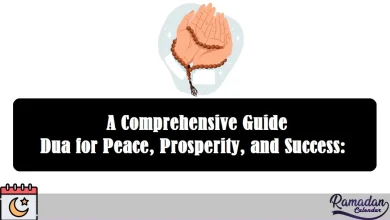
Understanding the Importance of Dua in Islam: Dua, often translated as supplication or invocation, is one of the most profound acts of worship in Islam. It is a direct and personal line of communication with Allah, allowing believers to seek guidance, express gratitude, ask for help, and pour out their hearts in humility. Dua is not just a ritual; it is a vital spiritual practice that connects the believer to their Creator, offering solace, hope, and a sense of purpose. This article explores the significance of dua in Islam and how it can transform our lives when practiced with sincerity and understanding.
The Central Role of Dua in Islam
In Islam, dua is much more than a mere request; it is an act of devotion that acknowledges Allah’s omnipotence and mercy. It reflects a believer’s reliance on Allah and serves as a reminder of their inherent vulnerability. The Quran emphasizes the importance of dua in several verses, such as:
“And your Lord says, ‘Call upon Me; I will respond to you.’” (Surah Ghafir, 40:60)
This verse highlights Allah’s promise to respond to sincere supplications, affirming that no request is too trivial or too grand for Him. It also underscores the concept of tawakkul (trust in Allah), encouraging Muslims to place their hopes and needs in His hands.
Dua as a Form of Worship
The Prophet Muhammad (peace be upon him) described dua as the essence of worship:
“Dua is worship.” (Sunan At-Tirmidhi)
This statement emphasizes that supplication is not just a secondary act but a core component of a Muslim’s relationship with Allah. By making dua, believers fulfill their purpose of worshiping Allah, acknowledging His sovereignty and mercy.
Benefits of Making Dua
The practice of dua offers countless benefits, both spiritual and psychological. Here are some key advantages:
- Strengthening Faith: Dua reinforces the believer’s reliance on Allah, deepening their trust and commitment to Him.
- Emotional Relief: Pouring out one’s heart in dua provides a sense of relief, reducing stress and anxiety. It is a form of catharsis that reminds individuals they are never alone.
- Forgiveness and Mercy: Dua is a means of seeking Allah’s forgiveness and mercy. A heartfelt plea for pardon can cleanse one’s soul and bring them closer to Allah.
- Guidance and Clarity: In moments of confusion or hardship, dua serves as a way to seek Allah’s guidance and wisdom.
- Barakah (Blessings): Regular supplication brings barakah into one’s life, enriching their efforts and providing sustenance in ways they may not have imagined.
How to Make Dua: Tips for Effective and Accepted Supplications
Times When Dua is Most Likely to Be Accepted
While dua is accepted at all times, there are certain moments and circumstances when it is particularly effective. These include:
During the Last Third of the Night: The Prophet Muhammad (peace be upon him) said:
“Our Lord descends every night to the lowest heaven when one-third of the night remains, and He says: ‘Who will call upon Me, that I may answer him? Who will ask of Me, that I may give him? Who will seek My forgiveness, that I may forgive him?’” (Sahih Bukhari)
- After Obligatory Prayers: Following the five daily prayers is an opportune time to make dua, as hearts are softened, and the connection with Allah is strong.
- During Rainfall and Travel: These are moments when the Prophet (peace be upon him) indicated that supplications are more likely to be accepted.
- On Fridays: The last hour before Maghrib on Friday is a particularly auspicious time for making dua.
How to Make an Effective Dua
To ensure your dua is sincere and impactful, consider the following tips:
- Begin with Praise and Gratitude: Start by glorifying Allah and thanking Him for His blessings.
- Invoke Salawat: Send blessings upon the Prophet Muhammad (peace be upon him).
- Be Specific and Sincere: Clearly express your needs and desires with sincerity and humility.
- Be Persistent: Repeat your dua regularly, showing perseverance and faith in Allah’s timing.
- Pray for Others: Include others in your supplications, as angels will pray for you in return.
- Have Faith in Allah’s Response: Trust that Allah will respond in the best way, even if it’s not immediately evident.
Common Misconceptions About Dua
Some people mistakenly believe that their duas are not accepted because they don’t see immediate results. However, it is essential to remember that Allah’s wisdom is infinite, and He answers supplications in one of three ways:
- Granting the request immediately.
- Delaying the response for a better time.
- Replacing the request with something better or averting harm.
Believers must trust Allah’s plan and remain steadfast in their supplications, knowing that He always has their best interests at heart.
Conclusion
Dua is a powerful and transformative act of worship that lies at the heart of a Muslim’s relationship with Allah. It is an expression of humility, gratitude, and faith that brings immense spiritual and emotional benefits. By understanding the importance of dua and practicing it with sincerity, persistence, and trust, believers can strengthen their connection with Allah and navigate life’s challenges with grace and confidence. Remember, no matter how big or small your concerns are, Allah is always ready to listen and respond. So, make dua a daily habit and witness the profound impact it has on your life.



